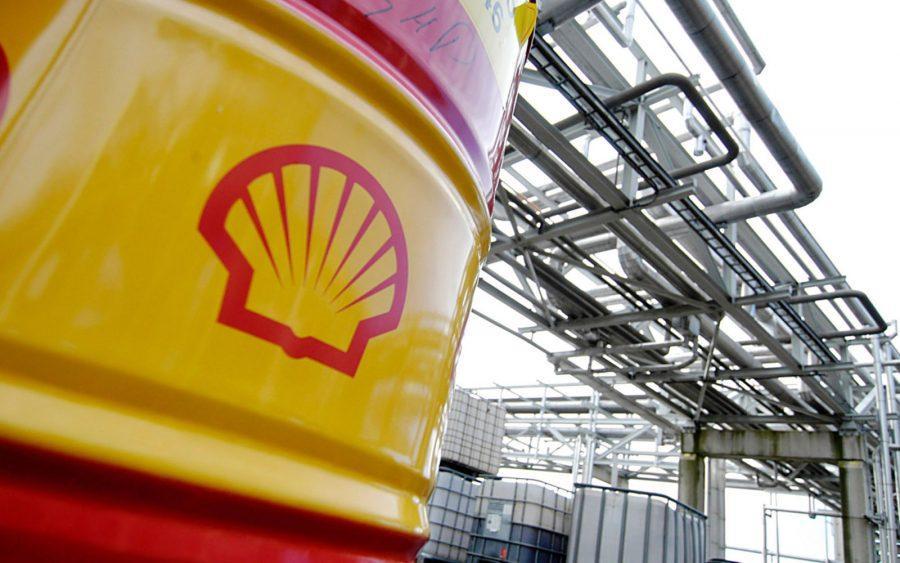
By – Abba Hamisu Sani
Africa-Press – Nigeria. As the largest oil producer in the World Shell has been in Nigeria for over 70 years.
It was Shell Nigeria that discovered the first commercial oil field at Oloibiri in the Niger Delta area in 1956 and it was the same company that started the oil exportation in 1958.
This little background indicated that Shell is the pioneer oil firm that engaged in oil and gas production in Nigeria right from the day one of Nigeria’s Oil discovery.
The story of the company ‘s move to sell its asset that use in onshore oil production come at time that the first largest Private oil refinery Dangote Petro-chemcal refinery begins production even though the company is yet to engaged in oil exploration but the sector witness a landmark with the establishment of such facility by a private enterprise.
Shell to Sell Onshore Oil assets to Nigerian Companies
Shell says it has agreed to sell its onshore assets to a consortium of local firms for over 1.3 billion US dollars.
In a statement on Tuesday 17th January 2024 ,the renown oil company said ,it will sell its Nigerian subsidiary ,Shell Petroleum Development Company Nigeria Limited (SPDC), for a consideration of 1.3 billion dollars ,with buyers making an additional payment of up to 1.1 billion relating to prior receivables at completion.
According to Shell ,the buyer of the asset,known as Renaissance, is a consortium formed by ND Western, Aradel Energy ,First Exploration & Production(E&P),Waltersmith,and Petroleum.
“Completion of the transaction is subject to approvals by the Federal Government of Nigeria and other conditions,”the statement indicated.
Shell added that it will remain a major investor in Nigeria’s energy sector through its Deepwater and integrated gas businesses .
Following completion,the company said it will retain a role in supporting the management of SPDC JV facilities that supply a major portion of the Feed gas to Nigeria LNG to help Nigeria achieve maximum value from NLNG .
The SPDC JV is an unincorporated joint venture comprising SPDC Limited (30 percent),the Nigerian National Petroleum Company Limited(55 percent),Total Exploration and Production Nigeria Limited (10 percent),and Nigeria Agip Oil Company Limited (5 percent).
The SPDC JV holds 15 oil mining leases for Petroleum operations onshore and three for petroleum operations in shallow water in Nigeria- operated by SPDC.
“The consideration payable to Shell as part of the transaction is 1.3 dollars .The buyer will make additional cash payments to Shell of up to 1 1 billion dollars primarily relating to prior receivables and cash balances in the business with the majority expected to be paid at completion of the transaction.The amounts above will be adjusted to reflect any shareholder distributions above 200 million dollars ,made prior to completion .Other contingent payments ,including those related to gas supply to NLNG ,may become payable depending on business performance and fluctuation of product prices,”the statement further reads .
Shell noted that it has three other businesses in Nigeria that are outside the scope of the transaction.They include Shell Nigeria Exploration and Production Company Limited (SNEPCo).Shell Nigeria Gas Limited (SNG),and Daystar Power Group.
“This agreement marks an important milestone for Shell in Nigeria ,aligning with our previously announced intent to exit onshore oil production in the Niger Delta ,simplifying our portfolio and focussing future disciplined investment in Nigeria on our Deep water and integrated Gas position”Zoe Yujnovich ,Shell’s integrated gas and upstream director stated.
Years of struggle with onshore oil spills due to theft sabotage
Since the British energy giant began its oil and Gas business in Nigeria in the 1930s ,it has struggled for years with onshore oil spills as a result of theft ,sabotage and operational issues that led to costly repairs and high -profile lawsuits.
Shell’s exit from onshore exploration comes on the back of previous exits by other international oil companies.
In February 2022 Seplat Energy PLC agreed to acquire ExxonMobil’s entire share in its shallow water business -Mobil Producing Nigeria Unlimited (MPNU).
Still after over one year ,the deal is yet to be completed due to regulatory setbacks.
In April 2022 TotalEnergies announced plans to sell its minority stake in a Nigerian oil joint venture ,joining other top firms divesting from onshore oil fields in the country.
Oando in September 2023 ,also disclosed that it had signed a deal to acquire 100 percent of Eni’s shares in Nigerian Agip Oil Company Limited (NAOC Ltd).
Another oil firm Equinor, a Norwegian Company ,had also agreed to sell its Nigerian business ,including the company’s stake in Agbani oil field to Chappal Energies, a Nigerian -owned firm.
An opportunity for local operators
Aisha Mohammed is an energy analyst .She said the assets being sold are highly profitable ,and with the right financing and expertise ,they can be the foundation for building strong ,sustainable Nigerian energy companies.
She added that four Nigerian Companies (Seplat Heirs Oil & Gas ,Sahara Energy and NDWestern ) were in the running at the end of 2021 when She’ll ask parties interested to put in firm bids by mid January 2022.
As of June 2023 only two entities -the Renaissance Consortium and the Heirs Oil & Gas /Tullow Oil Consortium remained in contention .The latter had dropped out of the race by October 2023, but Shell had been reticent about the deal making .
The analyst added that the rise of indigenous players would not only diversify the industry but also create jobs and boost the local economy.
Niyi Fagbemle is the Senior project Manager at the Sofidam Capital .He said the development would send a strong message that Nigeria is serious about developing its energy resources.
Fagbemle expressed that the challenges remain: access to financing ,competition from international oil companies and the need for skilled personnel are just some of the hurdles that local firms will need to overcome .
“Additionally ,concerns about transparency and regulatory hurdles in the in the Nigerian Gas sector could deter some potential investors ” He stated.
However this decision of Shell selling its onshore assets to the consortiums of Nigerian Indigenous firms can be seen in two perspectives as it will really affect the oil onshore exploration and production as the company has the largest investment and expertise in the field.
On the other hand the decision provides opportunities for Nigerian companies to grow wings in the sector even though the insecurity in the Niger Delta region remains to be a protracted challenge to the onshore oil production.
At this point ,there is an urgent need for the Federal government to intensify effort in improving the security in the oil producing region and the country at large for such economic prosperity to strive.
Additionally, the Nigerian government under Tinubu should strive to remove all the bottlenecks that delays the regulatory agencies in handling urgent economic and investment issues.
For More News And Analysis About Nigeria Follow Africa-Press






